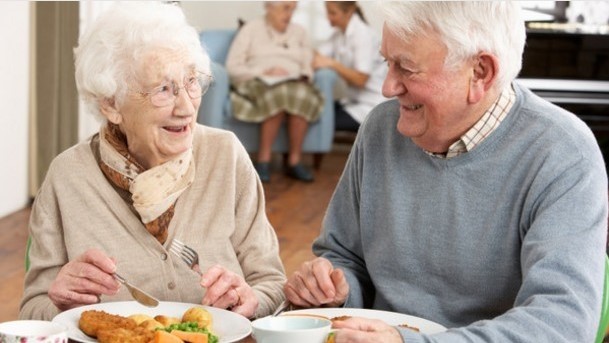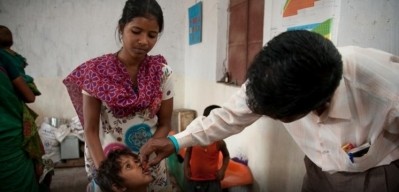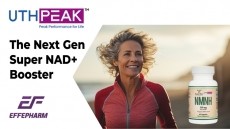COVID-19 puts spotlight on elderly malnutrition and recovery chances

Along with the Global Coalition on Aging, the paper highlights the turbulence caused by the coronavirus and brings into sharp focus the effect nutritional neglect is having on recovery and the ageing process.
“Nutrition is an essential component of recovery from severe disease, and nutritional care should be continued after hospital discharge as the body works to restore health,” says Dr Patrick Kamphuis, Senior Medical Affairs Director for Nutricia.
“The pandemic underlines the need to address malnutrition in older people across care settings.
“At Nutricia we believe adequate screening and management of malnutrition should be an integral part of care systems so everyone has a chance to age in good health and have the benefits of good nutritional care.”
In a call to action, the white paper urges policymakers and healthcare professionals to address the risk of malnutrition at an early stage due to effects seen on disease progression and health outcomes later on.
The authors highlight the conditions that proper nutrition can ward off that includes frailty, decreased bone and muscle mass, and a weakened immune system.
“Nutritional guidelines and timely medical nutrition interventions must be implemented in treatment protocols not only during hospital stays but also after patients are discharged,” the paper states. “Focusing care on individual needs and recovery goals will yield the greatest benefits.”
“Older patients who had COVID-19 benefit from follow-ups to ensure that they are not malnourished and to assess their rehabilitation needs, so that they may regain the ability to do the things that matter to them most and their quality of life is not diminished.”
Elderly vulnerability
Recent news coverage has highlighted the virus’ heightened effects on the elderly, resulting in this population to be classed as high-risk.
According to Dr Marina Ezcurra, Lecturer in the Biology of Ageing at the School of Biosciences at the University of Kent, age, frailty, chronic disease and physiological factors all play a role.
“Ageing is characterised by processes of decline typically observed across most species,” she explains. “These processes contribute to immune ageing and chronic inflammation, which could explain why the elderly are vulnerable to COVID-19.
“In addition, chronic illnesses increase the risk of severe COVID-19. Studies show that additional diseases are present in many patients, obesity, hypertension diabetes and coronary heart disease being common.
“These are all age-related, inflammatory diseases, and are likely to contribute to COVID-19 vulnerability.”
Earlier this month, a study revealed that elderly patients who had previously taken vitamin D3 supplements were more likely to survive COVID-19.
However, a single standard dose of 80,000 IU vitamin D3 after infection was probably too low and too late in the day to generate protective effects.
In a related topic, NutraIngredients also highlighted how vitamin D nutrition supplementation was addressed in care homes revealing both a failure to implement evidence-based recommendations and a "social injustice" in urgent need of public health advocacy and resolution.
Better screening needed
Commenting in the white paper, Professor Agathe Raynaud-Simon Head of the Department of Geriatrics, Hôpitaux Bichat et Beaujon, Paris, France, highlighted this point adding, “Older patients are amongst the most impacted patients infected with COVID-19.
“Recent French recommendations for care home residents similarly highlighted the need for better screening and management of care home residents during and after hospitalization in order to recover nutritional and functional status.”
The white paper concludes that focussing care on individual needs and recovery yields the greatest benefits, where older patients who had COVID-19 would benefit from follow-ups to ensure they are not malnourished.
“Rehabilitation programs for the recovery of older people should incorporate medical nutrition, combined with physical exercise,” the paper states.
“National health systems should adopt policies that reflect the importance of nutrition to healthy aging and recovery from disease.
“Such care pathways are necessary not only in the current context of the pandemic but more broadly in our aging societies in which maintaining functional ability will enable the 2bn people over 60 by 2050 to live longer healthier, and more active lives.”
















